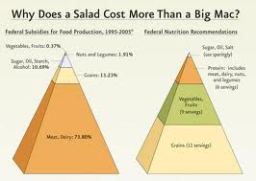Tags
food litigation, global health, obesity, Olivier de Schutter, Public Health, Richard Daynard, United Nations, World Health Organization
At the World Health Organization’s annual summit on Monday (May 19, 2014), a professor from Belgium, Olivier de Schutter, stated that global unity is needed to combat obesity around the world. He proclaimed that “just as the world came together to regulate the risks of tobacco, a bold framework convention on adequate diets must now be agreed.” He made further comparisons of worldwide obesity to the dangers of tobacco, which many news sources emphasized in headlines this week.
Olivier de Schutter has been a special rapporteur to the United Nations since 2008, and his announcement on Monday shares the theme of many of his former statements. In 2012, he delivered a report to the UN Human Rights Council, which included the proposal of taxes and limitations on unhealthy foods, as well as stricter regulations on the marketing of “junk food.”
As a public health student and as a consumer, I am frustrated that Professor de Schutter’s message from 2012 was largely ignored. I am frustrated by how difficult it is to have a healthy diet. For myself, for my friends and family, for everyone. In the US alone, poor diet leads to a multitude of preventable diseases. There’s so much information out there, but who do you trust? And am I supposed to worry about pesticides or not? Should I worry more about fat, sodium, or calories? Sometimes I feel like I need a degree in nutrition to order in a restaurant, or to go grocery shopping. Or I could go to Whole Foods and spend 50 dollars on a basket of food that will last me 3 days.
I’m not saying it’s easy to prioritize public health concerns, but how can something that is slowly pushing people into early graves not getting swifter action? Is it because the food industry, like big tobacco companies in the 90’s, is hiding behind its claims that their chemicals are not harmful? Or that they didn’t know they were harmful, and therefore, shouldn’t be held accountable?
Professor Richard Daynard made some important points in his article “Food Litigation: Lessons Learned From the Tobacco Wars,” one of which is that the fight against tobacco cannot be replicated to change the unhealthy food industry. The causes of obesity are multifaceted, and approaching litigation without taking that into account will be unsuccessful. Lawsuits that focus on deceptive food marketing techniques will most likely lead to changes that will protect consumers.
Things need to change. And there are so many possibilities for the future. Just as the fight against tobacco, change will come with unity, and a combination of approaches, including litigation, the taxation and regulation of unhealthy foods and marketing for them, subsidizing vegetables and whole grains, and education.
Please tell me how you feel, do you think all those approaches are possible, and reasonable?
-Erin

